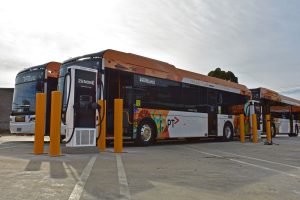
Ivanhoe: Victoria’s first all-electric bus depot
Ventura & Zenobē developed Victoria’s first all-electric bus depot, with 27 electric buses, infrastructure, and smart technology integration.
Woolworths, a major Australian grocery brand, wanted to electrify their fleet of 4.5-tonne last-mile delivery vans in Sydney. However, fulfilling their charging needs using the space at their own site wasn’t possible; the vans just didn’t fit. More than this, even with the right charging pattern, there wasn’t enough power at their sites. They needed an innovative solution.
Zenobē is going to build a private off-site charging hub to allow a number of companies to charge their vehicles. The site will be the charging point for Woolworths, for whom Zenobē has provided new electric vehicles – taking away the risk of battery technology and the CapEx investment that would otherwise have been needed.
Woolworths pays a monthly fee for the electric vehicles and their charging, benefitting from operational and maintenance guarantees, in an ‘all-in’ agreement known as Electric Vehicle as a Service, or EVaaS. This is a model Zenobē has wide experience in, taking on the investment risk for bus, truck, and fleet companies across the world.
The project has catalysed electric vehicle charging in Mascot, Sydney, not only for Woolworths, but also for businesses in the logistics and fleet industries. Companies in the Sydney suburb that would otherwise struggle to charge vehicles on their own site for practical reasons can now hire charging points, on an exclusive or non-exclusive basis.
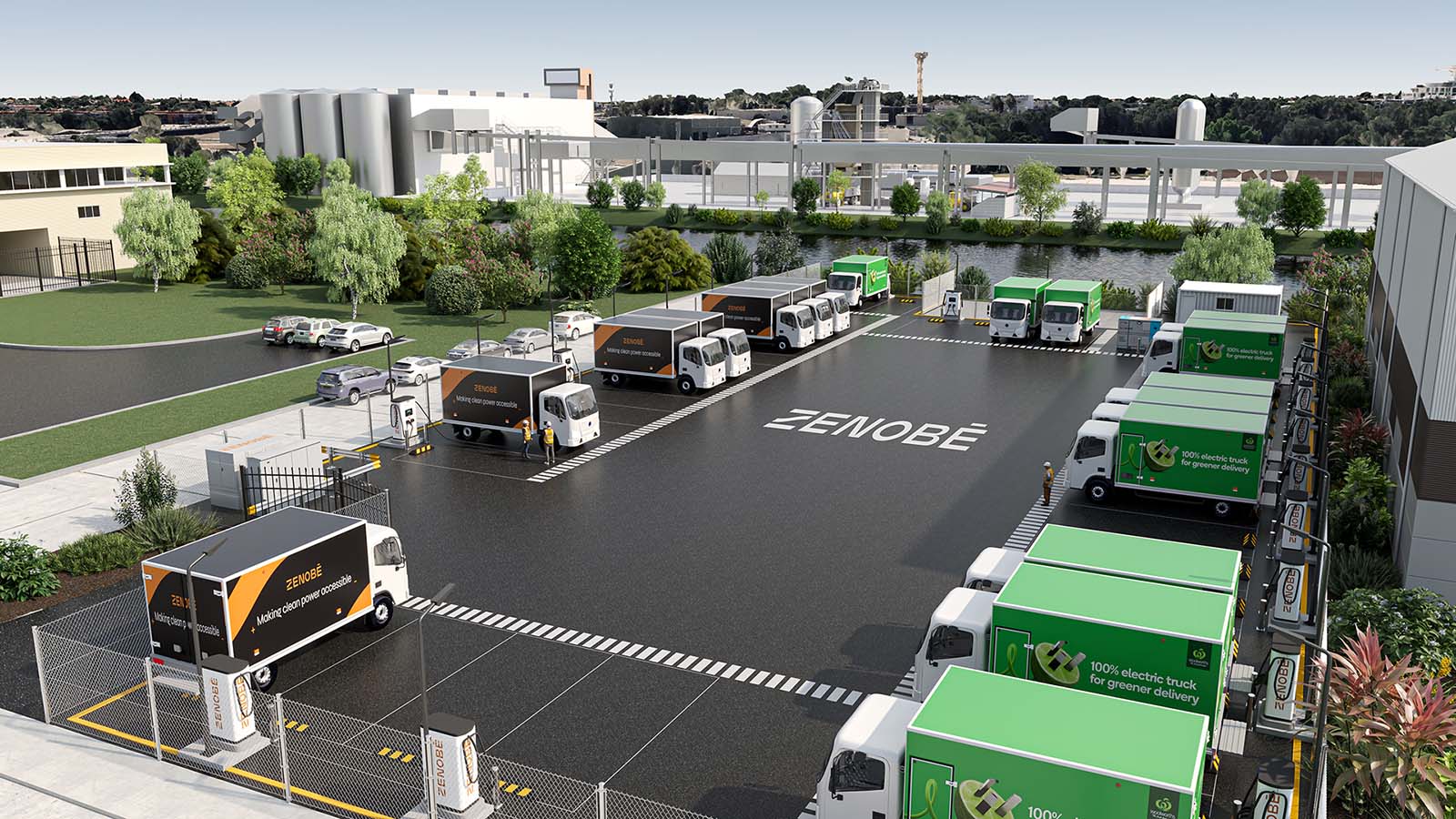
And the project overcomes the obstacle of funding for these parties, too; bringing together Zenobē’s private investment with the ARENA public subsidy brings the cost down for participants. A combination of grant funding, to help reduce the capital difference between a diesel and electric truck, and the savings on EV running costs such as fuel and maintenance, give the offering a much closer total cost of ownership (TCO) to a diesel equivalent for the end user.
Zenobē’s finance platform and electrification expertise were the help that was needed to secure the public funding.

For Woolworths, the wider strategy to deploy electric vehicles at their distribution site in Mascot, south Sydney, began with an exploration of how to install chargers. Yet, when their route and shift patterns had been analysed, it became apparent that they lacked enough space to charge the whole electric fleet on site.
Another early step in specifying an electric depot is to understand the energy needs of the site. Zenobē worked with the grocery brand to discover their peak power requirement by modelling and analysing charging programmes that match the retailer’s existing operations. Again, the existing location Woolworths occupied was not able to meet the requirement: the existing grid connection was not enough.
As a global electric fleet and battery storage specialist, Zenobē was able to unlock the constraints* of the Mascot area in which the retailer operated and make electrification of their fleet possible. In other words: Woolworths needed to explore new locations for charging, but couldn’t do this on their own.
*Where constraints included lack of funds, lack of space, and lack of power, Zenobē’s concept of a shared facility would spread the cost and the risk. And it brought its expertise to gain confidence and deliver a complex engineering project.

The first project of its kind, Zenobē’s shared hub needed a suitable site. Where would the facility be located? In a dense urban area, there were only a handful of vacant sites available. Each had to be evaluated and assessed on a variety of criteria: proximity to the warehouse, availability of power, and more.
Brownfield land comes with an existing history and condition, and the location that was selected for the charging hub already had some electrical cables running underneath. It was through its electrical engineering expertise that Zenobē was able to accommodate this within plans, ensuring the new infrastructure designs accommodated it while suiting the new requirements.
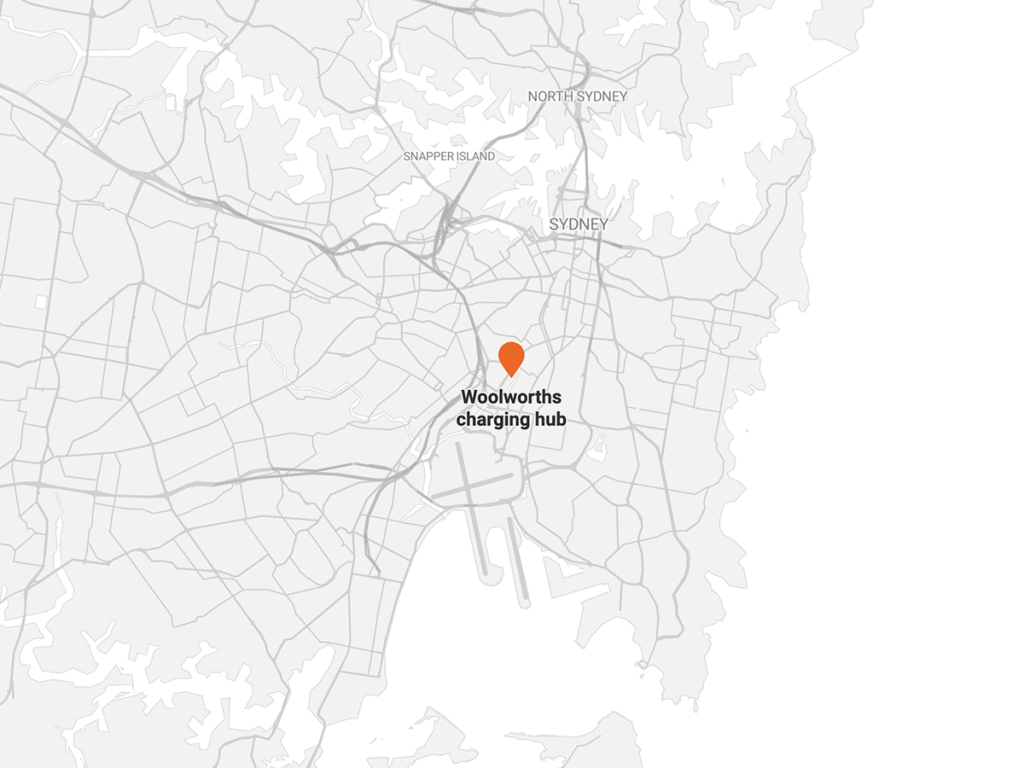
Such development projects require approval from the local city government, to ensure they’re well specified, and serve the needs of the community. As a result, plans were perfected through the Development Application (DA – or planning) process. Fortunately, technical expertise in Zenobē’s team ensured queries and amends were dealt with as quickly as possible – a very real hurdle for complex infrastructure projects across the world.
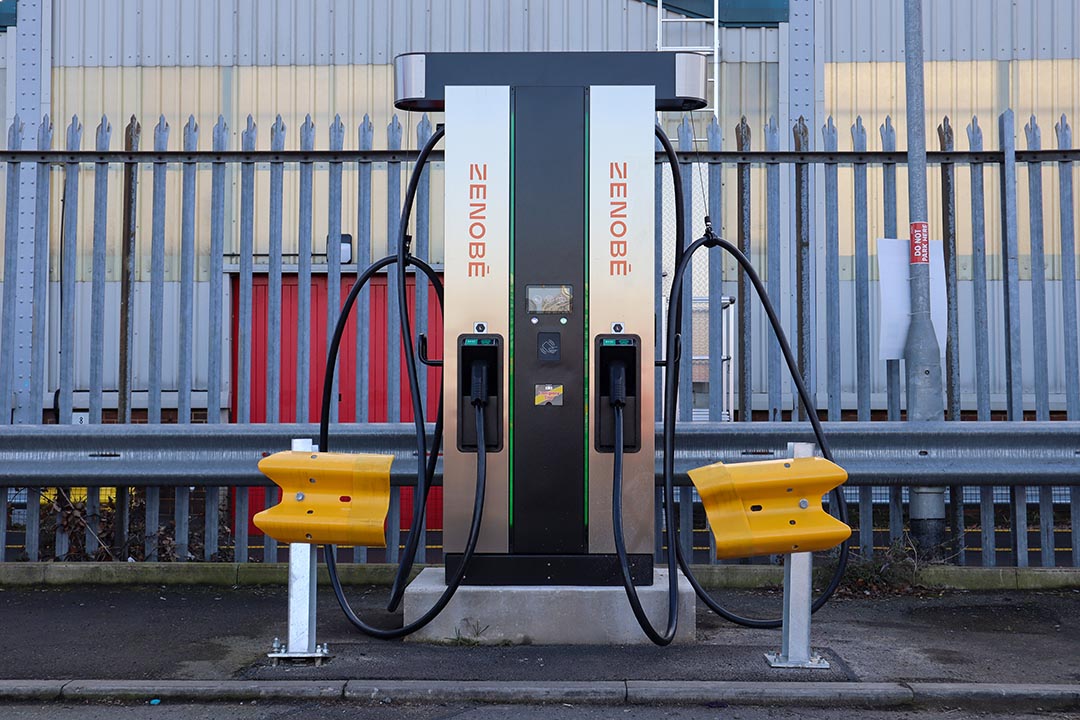
What about working out the right kind of chargers for the fleet of electric vehicles? What size are they, and where should they go? Any fleet owner wants to be sure the equipment and supporting infrastructure powering their operations is adequate at the very least, reliable, and that associated costs are minimised. For this project, Zenobē’s electrification expertise helped Woolworths reach the answers they needed.

The hub is available for those with electric vehicles to charge in a range of ways, making it a useful resource for companies to trial the technology during a period of change – all offered on a monthly fee basis.
The unique setup allows for flexible charging hire, with the following choices:
Potential users of the hub can evaluate the frequency of their charging need, alongside their fleet size. As an electric fleet grows, the charging requirement will increase – and the hub will be there to support it.
Woolworths, and other potential users of the Mascot site, have the opportunity to overcome high capital costs of purchasing vehicles outright, as Zenobē offers specialist financing options for vehicles, and provides guarantees to ensure operations continue unimpeded.

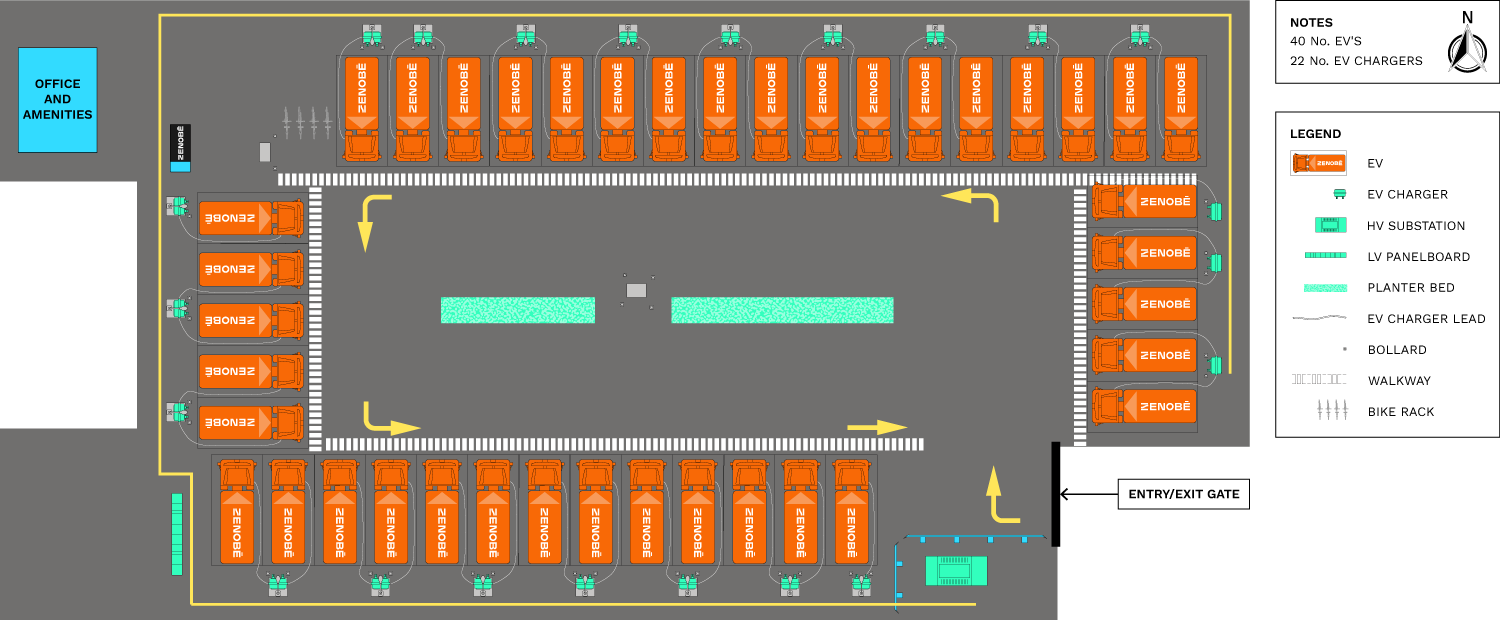
1MVA, 100kV grid connection
44 charging bays
Can accommodate vehicles of a weight up to 5 tonnes
22 DC chargers with a capacity of 120kW
Standalone units, with the inverter built in
‘Dual gun’ serving two vehicles at once
Supported by an onsite battery to provide additional power
Zenobē also provides award-winning smart charging software, and power procurement services. To request more information, fill out our form, and a team member will be in touch.

The electrification of commercial vehicle fleets is hugely challenging and needs innovative projects to catalyse progress overall. Zenobē is proud to deliver this shared charging hub alongside its various projects in Australia to date. We’re working to deliver new electric fleets and sites, to enable our clients to decarbonise while their operations continue without interruption.
In this case, public funds contributed to the cost of the electric charging site. ARENA’s ‘Driving the Nation’ funding programme enables adoption, and the reduction of hurdles to electrification, by supporting projects such as the Zenobē site that will make it easier for customers to access electric vehicle technology.
Zenobē’s track record in charging infrastructure, and in providing large electric vehicles, gave project leaders confidence in the proposal.

trucks electrified
grid connection
grant won

Ventura & Zenobē developed Victoria’s first all-electric bus depot, with 27 electric buses, infrastructure, and smart technology integration.
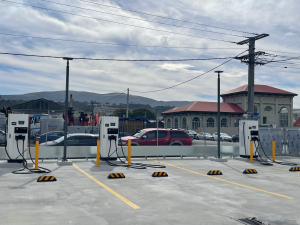
Zenobē worked with Ritchies to support the roll-out of 11 electric Yutong E10 vehicles to the streets and hilly suburbs of Dunedin, New Zealand.
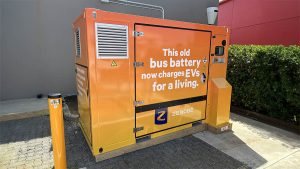
Zenobē and Z Energy trialled a second-life battery solution at Tom Pearce Drive, enabling 75kW EV charging without the need for costly grid upgrades.

Pete leads Zenobē’s growing team of Product specialists across all areas of the business. His team oversee our R&D as well as product development in both hardware and software.
He has been working in the European E-Mobility sector from over ten years, specialising in the design, build and delivery of software systems for EV Charging.